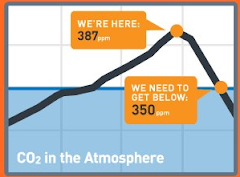
Greenish Brown
The prime minister is tackling climate change in small steps. But if he wants to see ambitious reform, he should look to the Conservatives
"Building a low carbon economy," Gordon Brown said yesterday, "demands a worldwide commitment on a comparable financial scale to the post-war Marshall plan."
The prime minister seems finally to have understood the significance of the environmental challenges we face. But so far at least, there's very little to inspire confidence in his willingness or ability to provide solutions.
It's all very well, for instance, to set ambitious targets - and Gordon Brown's latest targets on emissions reductions are impressive. But it's another thing to identify mechanisms that will actually enable us to meet them.
If, as the prime minister promises, Britain will fully contribute to a EU target that 20% of our total energy will come from renewable sources by 2020, that requires radical action now. We will need, for instance to increase the amount of renewable electricity we generate to 40%. At present, only 2% of energy in the UK comes from renewable sources.
How? Enabling local communities to benefit directly from wind farms, as he suggested, may help. Sending energy teams to the 50 poorest areas in the UK to help install energy efficiency measures will also help. Smart meters too. But these are small steps.
And they will, in any case, be overshadowed by government contradictions elsewhere. We are seeing increasing risk, for instance, of flooding, and yet we continue to build on flood plains. We are committed to cutting emissions, and yet current policy is geared towards trebling of our airport capacity.
This is what is so deeply frustrating. Gordon Brown has made the right noises. But he has failed to come up with significant answers. I think the problem is that he confuses "cost" with investment, and has been unable to see opportunities presented by the shift to a cleaner economy.
He also fears a voter backlash. But if there have been rumblings of an anti-green backlash, I believe Gordon Brown is partially to blame. It has been successive, clumsy initiatives by his government that have contributed to eroding people's appetite for green solutions, and worse, legitimising scepticism about politicians' motives.
Gordon Brown's previous idea, for example, of imposing an extra £50 on vehicle excise duty for a car they have already bought clearly won't lead to any shift in behaviour. Similarly tax reductions on "zero carbon homes". It sounds great, but what's the point in offering carrots for goals that are currently unattainable?
The best mechanism for pricing pollution and the use of scarce resources is through a shift in taxation. If the tax emphasis shifts from good things like employment to bad things like pollution, companies will necessarily begin designing waste out of the way they operate.But governments need to accept that people do not trust them. So if a tax is levied against a "bad" activity, it must be seen to be offset against "good" activities.
In principle, Brown is committed to "green taxation". But, in practice, the change on his watch has been negligible. The actual level of green taxation has fallen since 1997 from 9.4% to 7.7%, even while the tax take generally has soared.
Gordon Brown said yesterday, we need "governing not gimmickry". A good first step is to examine the successes of other governments.
If "feed-in tariffs" have triggered a renewable energy boom in Germany, why not implement them here, as the Conservative party has proposed?German householders are guaranteed a high price for the energy they generate and sell back to the grid. As a result, a single town in Bavaria generates more solar energy than the whole of the UK.
If existing energy-efficient appliances can deliver massive energy savings, why not demonstrate real leadership by raising appliance standards, instead of distributing token lightbulbs? We know the manufacturers can and will respond.
Change will happen, one way or another. It's a mathematical certainty. But if we take the lead now, it will happen on our terms, and we can emerge with a cleaner, leaner, more efficient economy.










